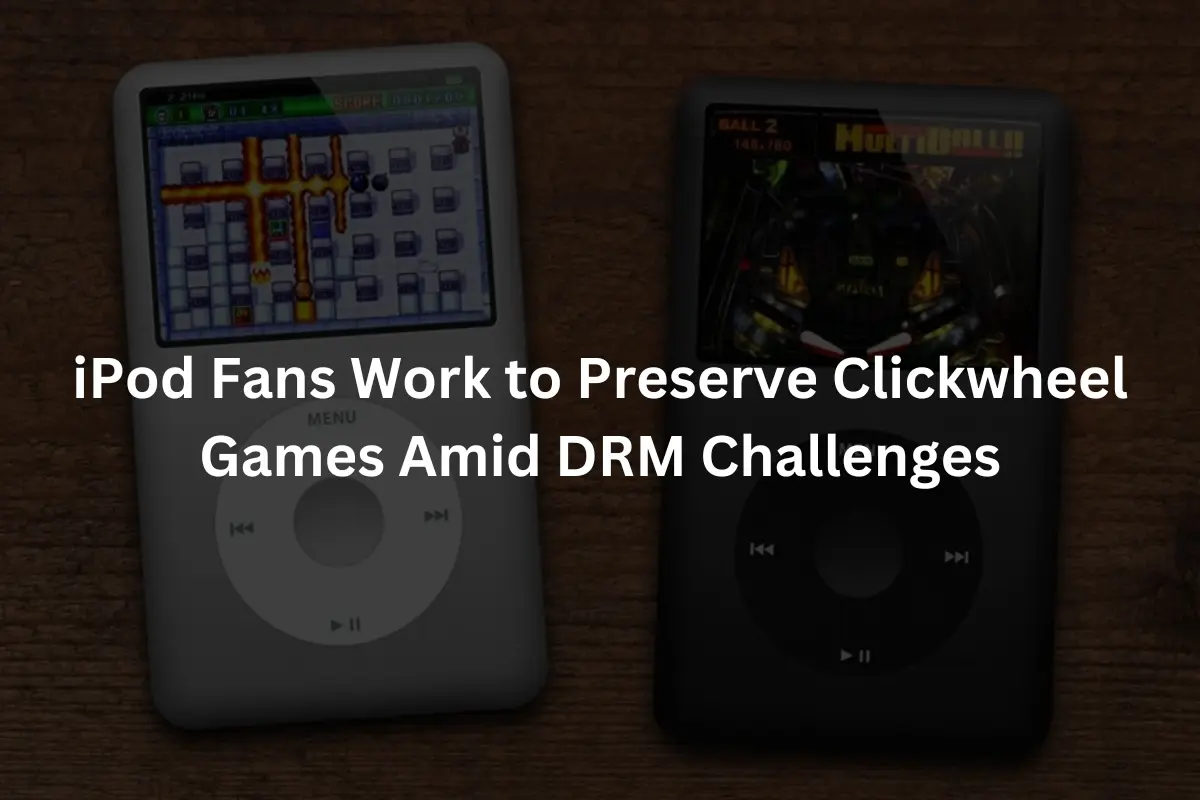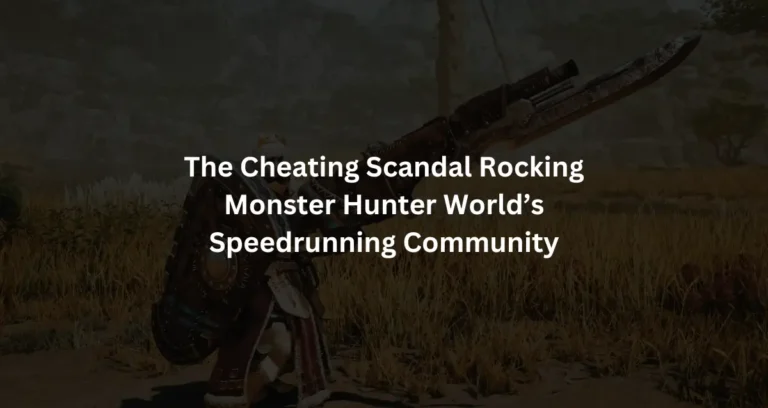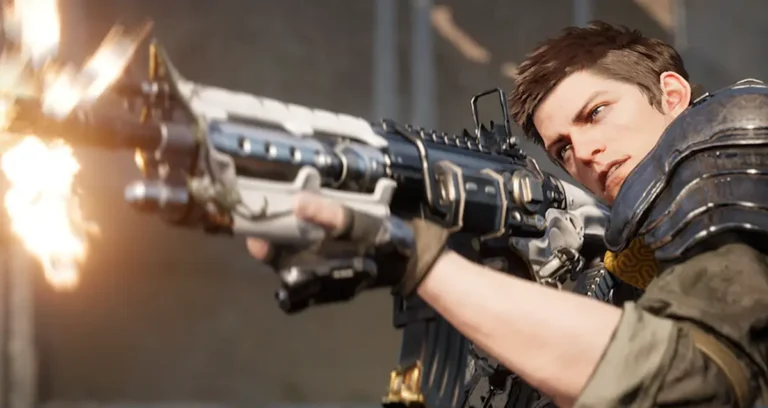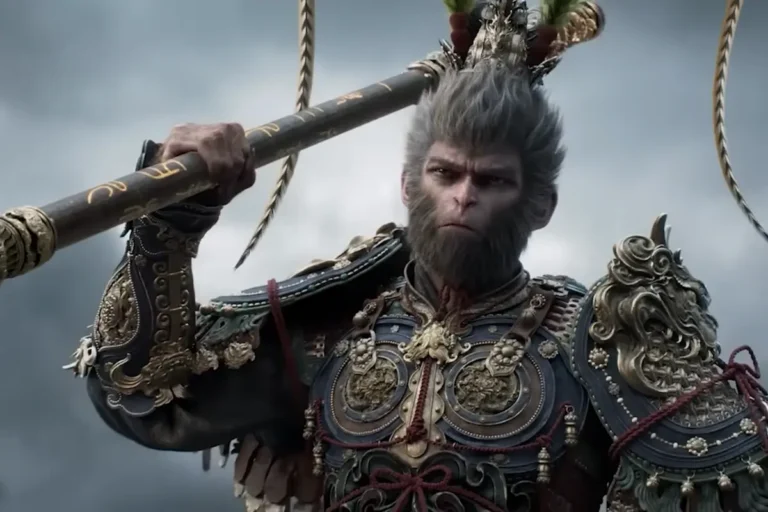iPod Fans Work to Preserve Clickwheel Games Amid DRM Challenges
A throwback to the pre-iPhone, a community of classic iPod enthusiasts has banded together to rescue nearly-lost clickwheel games from Apple’s digital rights management, which had all but wiped them out. First introduced between 2006 and 2009 for late-model iPods, the game is now “lost media,” no longer available to purchase or download.
Apple’s FairPlay DRM, which protected music, movies, and games on iPods years ago, is now one of the biggest barriers for the enthusiasts who want to restore these old games on old devices. To overcome this problem, enthusiastic fans have been applying innovative workarounds in order to keep these games alive, and they are available to anyone with a compatible iPod.
The Rise and Fall of Clickwheel Games
Between 2006 and 2009, Apple signed with other developers such as Sega, Square Enix, and Electronic Arts for launching 54 games especially for the iPod with clickwheel control. With these costing a staggering $7.49 a piece, these represented something of an innovation experience to the user since navigation and control relied largely on the clickwheel. Among the titles available were Asphalt 4, Peggle, and Phase. The latter was an iPod exclusive, creating rhythm tracks from personal music libraries.
The iPhone and iOS gaming also led to the end of clickwheel games. Apple did not sell the old clickwheel games on iTunes after 2011. By 2014, Apple had stopped selling its classic iPod line. Since then, those old clickwheel games are dead, and DRM restrictions add an extra layer of challenge by restricting users from syncing their older game files into newer devices or iTunes installations, considering the fact that access to the original iTunes account and hardware identifier is needed.
A Community’s Quest for Preservation
Even though the compressed ipg files from these games are preserved by digital archivists, Apple’s DRM made it almost impossible for a new user to load it on their iPods. Feeling that these titles have significant historical value, a group of iPod enthusiasts started a project to preserve them and keep them playable.
The major breakthrough came when Quicks, a Reddit user, found a workaround in allowing multiple users to share authorized copies of games via a shared iTunes library. This pooling of resources resulted in a limited library of 19 games that can be synced to classic iPods.
However, with Quicks’s method, physical access became a problem because the users had to ship their devices to him so that he could load the games-a costly and time-consuming process.
A Virtual Solution: The iPod Clickwheel Games Preservation Project
Another Redditor, “Ulo,” initiated the “iPod Clickwheel Games Preservation Project” building upon Quicks’ work and thus avoided the need for sending games for physical transfer. Instead of a library in the local sense, Ulo created a virtual machine environment that functions almost like an online library for authenticated iPod games. Using such a virtual machine, authorized clickwheel games can now be accessed by iPod users so they can sync them into their devices without sending for physical syncing.
From day one of the project Ulo has managed to amass 45 of 54 clickwheel games toward attaining a complete set at the end. This will be the collection that no longer depends on Apple servers for reauthorization in future – something that Ulo really desires for it to be permanently accessible. But Ulo recognizes one time limit : when Apple will decide it has to shut down all the reauthorization servers- then the users will find it impossible to add newer games to their iPods.
“If that version of iTunes dies tomorrow, this preservation project will be stopped,” Ulo shared in a Discord discussion. “No new games will ever be added. We do not know how much time we still have to accomplish this, so there is no time to lose.”
Nostalgia and the Value of Preserving Digital History
To the many people in the classic iPod community, these games form a formative part of mobile gaming history. As a precursor to the wild success of free-to-play with ads and microtransactions, Apple’s clickwheel experience was premium: fully offline, ad-free, and complete. “The clickwheel wasn’t designed for fast-paced games, but titles like Peggle and Phase cleverly made use of those limitations,” says Ulo.
For some enthusiasts, these games are just a reminder of a time long gone, before the ad-driven model changed mobile gaming. “The clickwheel games were a reflection of that gaming period of premium games,” Ulo said, noting that the experience was one of simple enjoyment rather than constant monetization. Even the less polished games in the collection, such as a tough port of Sonic the Hedgehog, have appealed to gamers interested in historical significance and retro charm.
A Race Against Time
Ulo’s iTunes virtual machine has captured the imagination of digital preservationists and classic game collectors alike. Much like many preservation efforts, Ulo’s project was inspired by a passion to keep digital artifacts alive. “Getting the full set is also addictive in terms of collection,” Ulo said, “like any other kind of collectible thing.” But the continuation of the project is unsure; if Apple deactivates its reauthorization servers, then the ability to add new games will be over.
To those who would want to support the preservation project, Ulo invited them to connect via Discord and further emphasized that the help from more enthusiasts will be important to complete the collection before a potential shutdown.
This is where the challenge of classic media enthusiasts lies, as it requires them to navigate an incredibly complex world of DRM, digital ownership, and the risks of servers being turned off to keep the digital content. For iPod fans, clickwheel games represent more than just nostalgia; it is a lost chapter in the evolution of mobile gaming.







